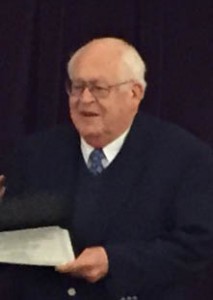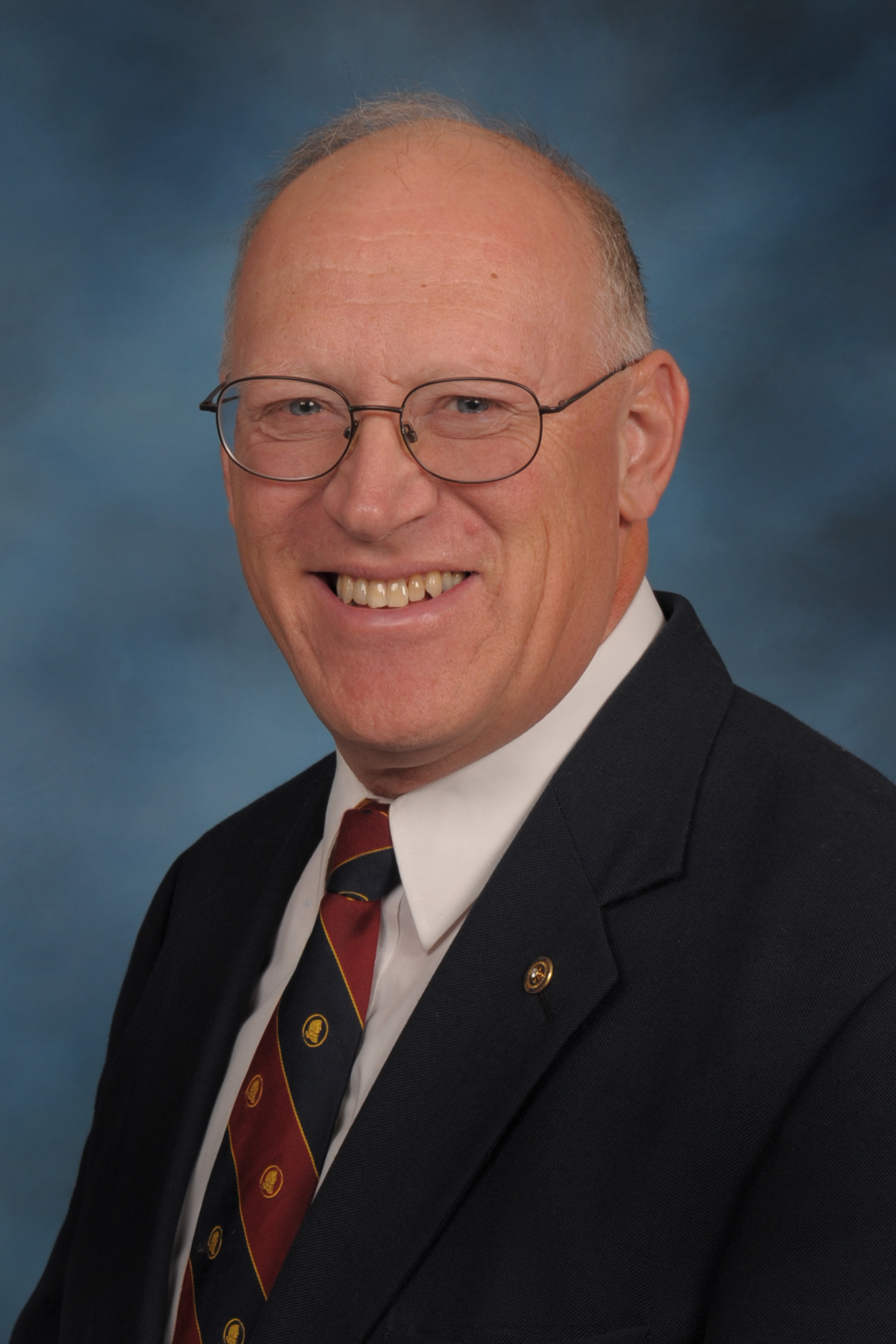
By Ron Wilson, director of the Huck Boyd National Institute for Rural Development at Kansas State University.
Listen, I hear a Tad Poll. No, not a young frog. I hear a radio program called the Tad Poll which one legendary broadcaster has been doing for decades in rural Kansas. It’s today’s Kansas Profile.
Tad Felts is news and sports director at radio stations KKAN and KQMA in Phillipsburg. He has had an incredible career in community radio.
Tad has rural roots. In 1933, he was born at Oakley, a rural community of 2,106 people. Now, that’s rural. Tad’s family moved to Garden City where he grew up. When he was eight, Tad’s father was tragically killed in a hunting accident. Tad’s mother went to a typing class at Garden City Community College and got a job to raise her son. “I learned a strong work ethic from her,” Tad said.
As an eighth grader, Tad began sweeping floors and playing records at the local radio station for free. He found he loved radio.
Tad went to Fort Hays State University and worked part time at station KAYS, filling out logs and writing copy. In 1964, he went to KLOE in Goodland. It was his first chance to be on-air. Next he came to Phillipsburg for two years and then to a radio station in Idaho.
“In 1972, we were back in Phillipsburg visiting friends for Christmas,” Tad said. “The manager of the radio station talked me into coming back to stay, and I’ve been here ever since.”
In addition to news reporting on KKAN-KQMA, he does a daily morning radio show. Each week he does the Tad Poll. “Originally I would ask a question and ask people to call in with opinions,” Tad said. “Now we feature interviews with various guests.”
As news and sports director, Tad has attended countless city council and school board meetings plus special events, in addition to football and basketball games and track meets.
During wheat harvest, he goes to the field and interviews farmers in their combines. “I have two hard-and-fast rules for harvest interviews,” Tad said. “Number one, never interview a combine operator whose combine has broken down (yes, that is not a good time); and number two, never drive out into a stubble field (sometimes a hot car exhaust can cause the wheat straw to catch on fire).”
How did his interest in sportscasting come about? Did he play sports in high school? “Very badly,” Tad said. “I went out for football but I was blind as a bat without my glasses. I wouldn’t know who I was tackling,” he said with a smile.
His lifelong interest in sports has made him a legend among Kansas broadcasters. Tad has broadcast the state track and field championships for more than 40 years.
One of Tad’s sons was a starting guard on a Phillipsburg basketball team which was ranked number one in the state. “It was special to broadcast those games,” Tad said.
When Smith Center High School had its amazing 79-game national record winning streak in football, Tad broadcast all but two. One of those he missed due to a back injury, and the other was when he accompanied the Phillipsburg girls tennis team on a visit to the U.S. Open in New York.
Tad is now 81, still doing the Tad Poll broadcast and working 60 hours a week at the radio station. His wife passed away last fall. One of their sons is in business in Houston and the other is a doctor in Junction City. “I’ve had a full life,” Tad said.
The Kansas Association of Broadcasters annually awards the Hod Humiston Award for Sports Broadcasting and the Sonny Slater Award for Service to Station and Community, in addition to inducting members into the KAB Hall of Fame. Tad is the only Kansas broadcaster to have received all three honors.
Listen, I hear a Tad Poll. Not a frog, but a legendary broadcaster who is serving rural Kansas. We salute Tad Felts for making a difference with his long-term commitment to radio and to community.
And there’s more. Tad’s duties have taken him from the studio to the nation’s capitol. We’ll learn about that next week.
By Ron Wilson, director of the Huck Boyd National Institute for Rural Development at Kansas State University.
